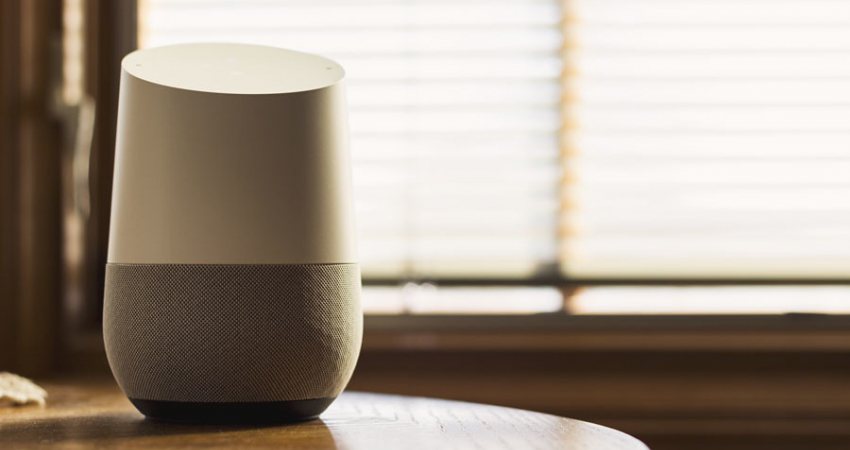‘Hey Google, what do you know about me?’
NDB Photos from Flickr

In short
- Virtual voice assistants promise to make our lives easier.
- When it comes to voice assistants, hardly any attention is given to issues regarding power relations, autonomy, privacy, and freedom of choice.
- The Rathenau Instituut will research these questions.
‘Hey Google, order cookies.’ The light of the smartspeaker blinks, and after a short pause a woman's voice says: 'Chocolate chip cookies have been ordered at the nearest Albert Heijn.' Easy, quick, and without even looking at a screen, typing, or clicking your mousepad, in the near future you can order groceries using a virtual voice assistant.
The rise of voice technology
Virtual voice assistants, such as Alexa (Amazon), Siri (Apple) or Google Assistant, were already familiar from our smartphones. But now, they are also entering our living rooms in the form of smartspeakers. These are devices that listen and execute commands, such as giving you the weather forecast. The invention of smartspeakers heralds a new phase in the application of speach technology.
In America, at the beginning of 2019 over a quarter of the population owned a smartspeaker. Even here in the Netherlands voice assistants are gaining popularity, even more so after the introduction of the first Dutch smartspeaker (Google Home) in October 2018. The coming six months, marketing bureau Kantar expects to see a growth of 80 percent in ownership of smartspeakers in Dutch homes.
Fundamental change in human-computer interaction
The rise of virtal voice assistants and smartspeakers changes the way we use computers and devices: from typing to talking. The interaction with devices becomes handsfree and 'eyes free'. This makes them even more intuitive to use than a touchscreen. The computer learns our language and adapts to our needs. Because of this, using speech technology will quickly become attractive to a large part of the population. But what does this mean for our interaction with the digital world, and with each other? What happens when we entrust our lives to devices and become dependant on these assistants? The video below makes clear, in a humorous way, that we need to think more about the consequences of using speech technology.
Privacy, freedom of choice, and inclusiveness
The fictional example of buying cookies shows that voice assistants and smartspeakers promise to make our lives easier. But why are 'chocolate chip cookies' and 'Albert Heijn' the standard suggestions? Who controls this and benefits from it? Why does a woman's voice give us this message? How sensitive are these devices to cyber attacks? Who is listening, and what happens with the data that large tech companies receive from our speech requests? These are some of the questions that arise with the use of speech technology, and they deserve more attention than they currently get.
Therefore, the Rathenau Instituut has started exploring the societal and ethical issues concerning voice assistants.This exploration builds on previously conducted research. In the spring of 2020 we will publish our results.
If you want to know more about this research, please contact Serf Doesborgh or Linda Kool.
